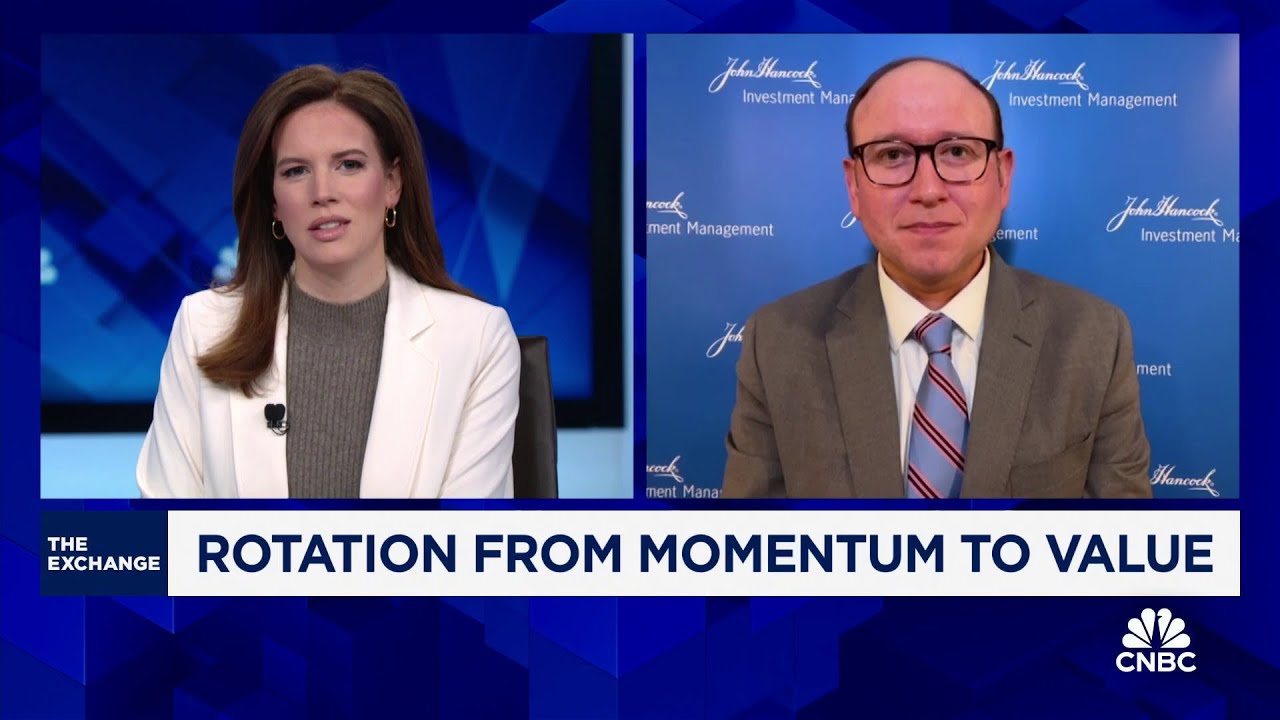Matt Miskin, co-chief investment strategist at John Hancock, discussed the declining appeal of the “AI trade” and the challenges faced by high-flying momentum stocks, emphasizing a market shift towards mid-cap and quality value stocks. He advocated for a fundamental investment approach focused on high return on equity companies, cautioning against reliance on momentum trading due to potential volatility and macroeconomic headwinds.
In a recent discussion, Matt Miskin, co-chief investment strategist at John Hancock, shared insights on the current state of the stock market, particularly focusing on the challenges faced by high-flying momentum stocks. He noted that while the market has held up relatively well, there has been a noticeable decline in sentiment as time progresses. Miskin emphasized that the “AI trade” may be losing its appeal, suggesting a shift in market dynamics where the previously dominant stocks are struggling to reach new highs.
Miskin pointed out that the concentration of market power among a few heavyweight stocks, which accounted for 40% of the market, is becoming problematic. He highlighted the difficulties faced by the “Magnificent Seven” stocks, indicating a broader market rotation towards mid-cap and quality value stocks, particularly in sectors like healthcare, utilities, and industrials. He stressed the importance of seeking high return on equity (ROE) companies, as traditional dividend yields are at historic lows, making it essential to focus on quality stocks with reasonable valuations.
The conversation also touched on the frothy nature of some momentum stocks, which had reached unsustainable price-to-earnings (P/E) ratios. Miskin likened momentum trades to locusts that quickly move from one hot trend to another, cautioning that relying solely on momentum can lead to significant volatility. He advocated for a more fundamental approach to investing, emphasizing the need to focus on value rather than just recent performance.
When discussing the “Magnificent Seven” and other high-profile software companies, Miskin acknowledged that while these companies have strong fundamentals, the market is currently not rewarding them due to macroeconomic headwinds and headline risks. He noted that despite a robust earnings season with an 18% growth rate, the market’s reaction has been tepid, suggesting that there are quality stocks available at attractive prices that investors should consider.
Finally, Miskin reflected on the market’s performance over the past couple of years, noting that back-to-back gains of 25% are historically rare. He cautioned that expectations for future equity returns should be tempered, as the market may not replicate such high returns in the near term. He recommended a defensive strategy focused on value stocks and dividends to help mitigate potential downside risks, urging investors to remain patient during this period of market adjustment.
